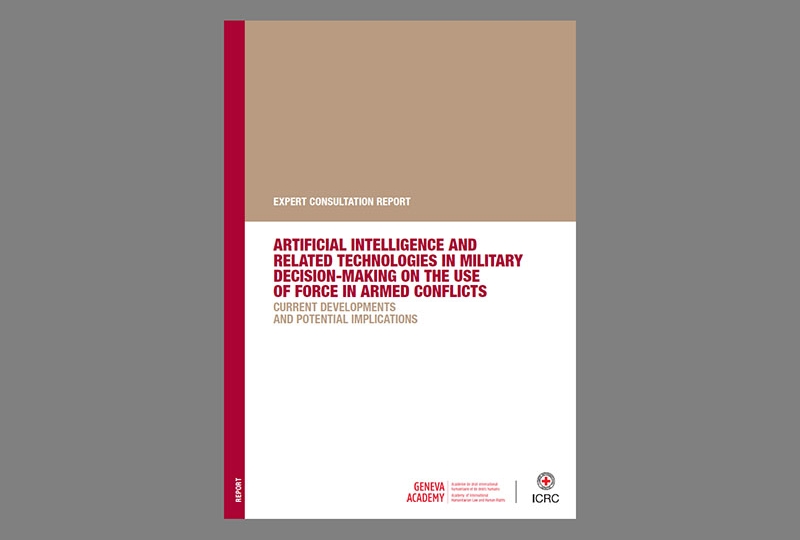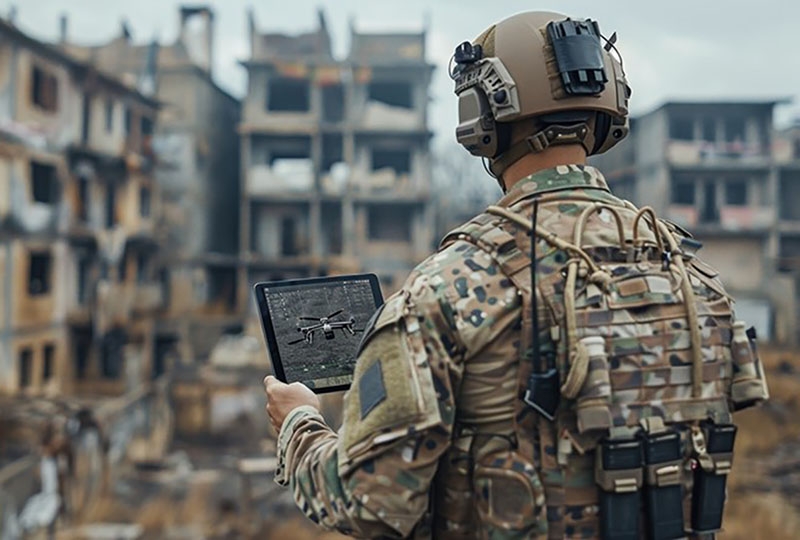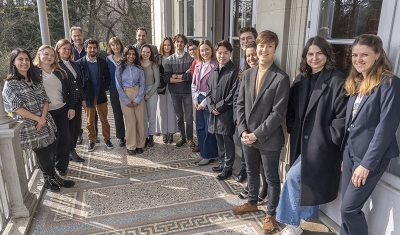13 May 2024
Our latest report, ‘Artificial Intelligence And Related Technologies In Military Decision-Making On The Use Of Force In Armed Conflicts: Current Developments And Potential Implications’, highlights and examines some of the themes that arose during two expert workshops on the role of AI-based decision support systems (AI DSS) in decision-making on the use of force in armed conflicts. Drafted by Anna Rosalie Greipl, Geneva Academy Researcher, with contributions from Neil Davison and Georgia Hinds, International Committee of the Red Cross (ICRC), the report aims to provide a preliminary understanding of the challenges and risks related to such use of AI DSS and to explore what measures may need to be implemented regarding their design and use, to mitigate risks to those affected by armed conflict.
Anna Rosalie Greipl explained, ‘The introduction of AI to DSS for military decision-making on the use of force in armed conflicts adds a new dimension to existing challenges relating to non-AI-based DSS and distinct legal and conceptual issues to those raised by Lethal Autonomous Weapon Systems. These systems carry the potential to reduce the human judgment involved in military decision-making on the use of force in armed conflicts in a manner that raises serious humanitarian, legal, and ethical questions.’
Georgia Hinds went on to underscore the critical role of human judgment in addressing these concerns. ‘It’s crucial to preserve human judgment when it comes to decisions on the use of force in armed conflicts. And this will have implications for the way these systems are designed and used, particularly given what we already know about how humans interact with machines, and the limitations of these systems themselves.’









